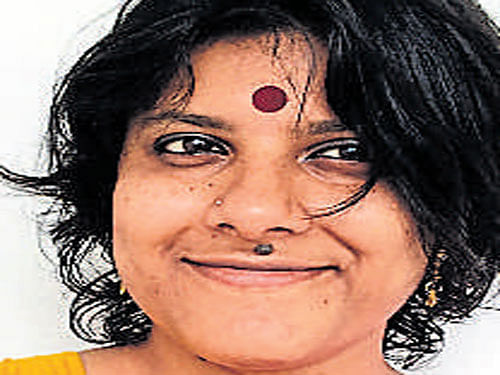The idea of women seeking to have equal rights in marriage, divorce and inheritance seems like an unbelievable, unattainable form of legislation. The current debate on the Uniform Civil Code seems to be less about rights within a personal law framework and more about secularism and liberal thought.
Let me begin by talking about marriage, because I believe the conversation till now has only been about divorce and separation. The registry of marriages as a form of legal legitimacy to otherwise community and custom-based rituals, is plagued by issues of religious and social sanction. The Special Marriages Act, 1954, that is used to conduct marriages without any form of religious-community ritual and sanction is usually associated with inter-religious marriages.
This is a problem, because of the existence of the Hindu Marriage Act that deems a small Arya Samaj-style wedding mandatory to legitimise the marriage in court. In case of wanting to register under the Hindu Marriage Act, the newly weds have to produce pictures of their community-religious wedding. And though the Special Marriages Act may be invoked by a Hindu couple or Muslim couple seeking to register a marriage, its exclusive use by inter-faith couples bears testimony to the ways in which the law as it currently exists, operates in ways in which personal freedom is bracketed within religious idioms.
Let us not forget that personal laws are about drawing boundaries around community rights and spaces more than granting equality. In opposition to such ‘boundary maintenance’ is the state of Goa, for instance. The Uniform Civil Code (UCC) or the Goa Civil Code is modelled on the lines of the Portugese Civil Code and was introduced under Portugese rule. The tenets of the law govern all aspects of family law for the people of Goa, including marriage, divorce and inheritance. The major points of difference from the Indian law in general include the provision that after divorce, the couple would share all jointly-acquired assets, and that Muslim man is not allowed to practice polygamy or verbally divorce his wife.
It is these two provisions that govern the public debate on UCC. A large part of the building of consensus and dissonance around UCC in public discourse, unfortunately, has been on the question of Islamic practices. The current conversation about how the bringing in of a UCC directly targets Islamic practices of marriage and divorce needs to be quelled with immediate effect.
Rights of a wife
Of course, the debate on UCC emerged in answer to petitions filed by women from different parts of the country seeking to remove the practice of “triple talaq”. Any conversation on verbal divorce is followed by a critique of polygamy. As Nivedita Menon – feminist scholar and professor of political thought at the Jawaharlal Nehru University, New Delhi – mentions in her critique of UCC, that as opposed to the legitimate practice of polygamy within Islam, Hindu women do not get rights as second or third wives, and are prone to abuse. It is this form of lopsided focus within the ongoing public discourse that needs to be investigated to be able to provide equality in personal laws across the board. A Uniform Civil Code should reinvestigate every form of personal law, including that of the Hindus.
However, public discourse is unwilling to discuss what UCC will bring in. The most important aspect of UCC will be inheritance rights for women in their natal and conjugal property. Important steps to gaining equality and weeding out socially endorsed practices such as dowry are linked to financial freedom and independence for women.
How do we then advance to the conversation on the UCC? By looking at it holistically, and not reducing it to an approach that tends to pit communities and genders against each other. What India needs to avoid is to replicate the French policy of enforcing a dress code that tends to delegitimise or exclude based on recognisable attire that is not worn by the majority. This form of state-endorsed identification of people through attire is dangerous, and unfortunately, the current conversation on UCC is headed in that direction.
Coming back to divorce: the UCC debate is centred on it for a reason. As women, and men, seek to end and move on from unhappy marriages leading to rising divorce rates in India, we need to think about how the state should enter into the intimate domain. Should the state be involved at all in deciding how people marry or divorce? The Uniform Civil Code needs to be understood in keeping with current trends and larger understandings of society and social life, because ultimately, personal law is more about being part of a community rather than personal freedom.
(The writer is assistant professor, School of Liberal Arts, IIT-Hyderabad)
Deccan Herald is on WhatsApp Channels| Join now for Breaking News & Editor's Picks
